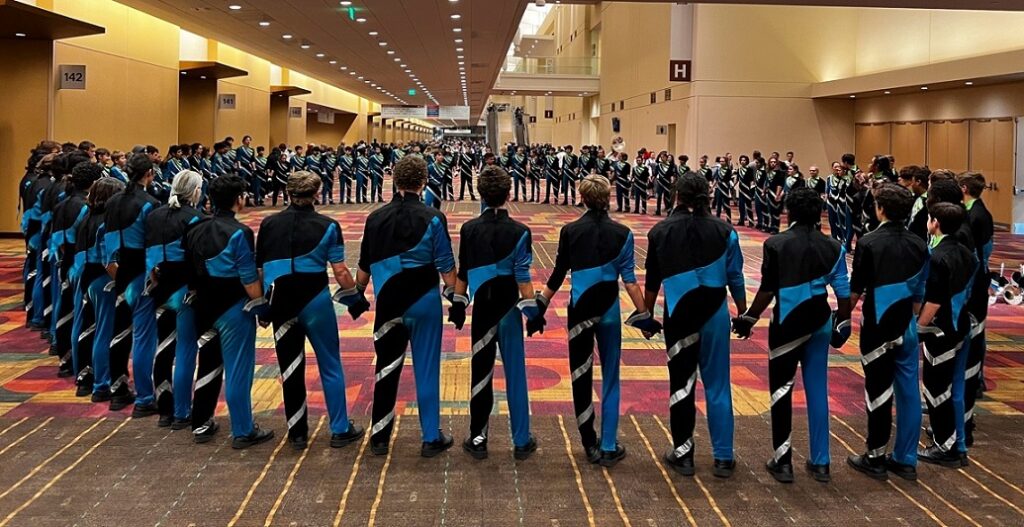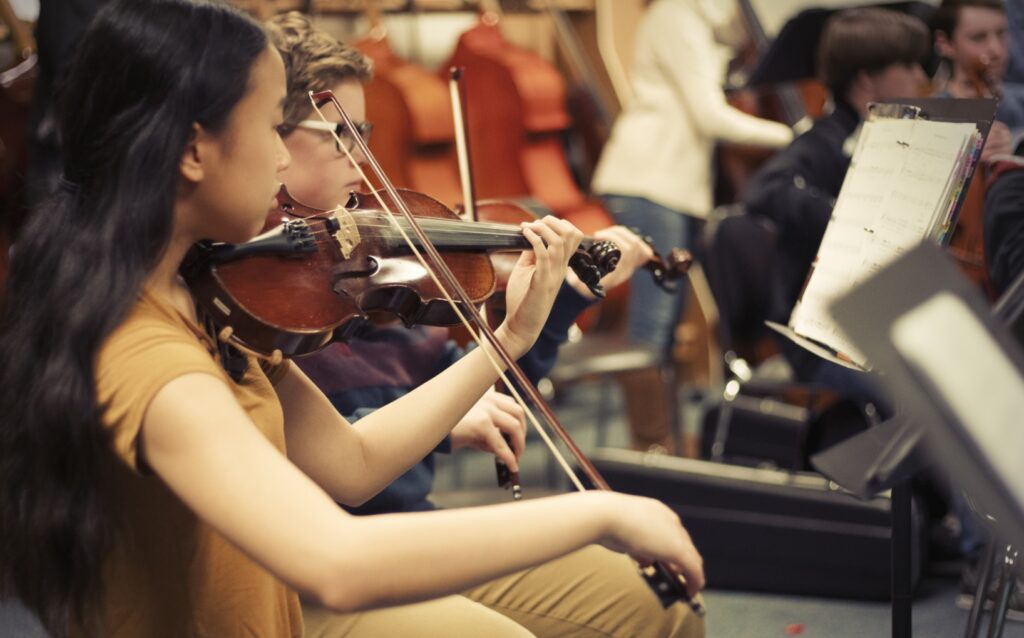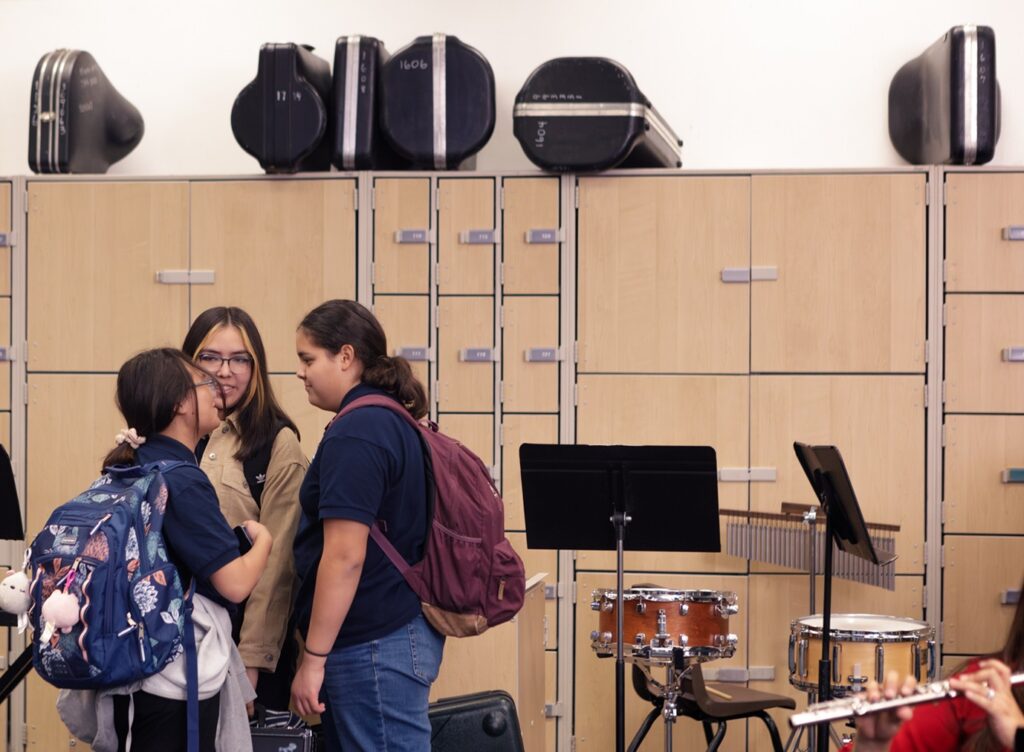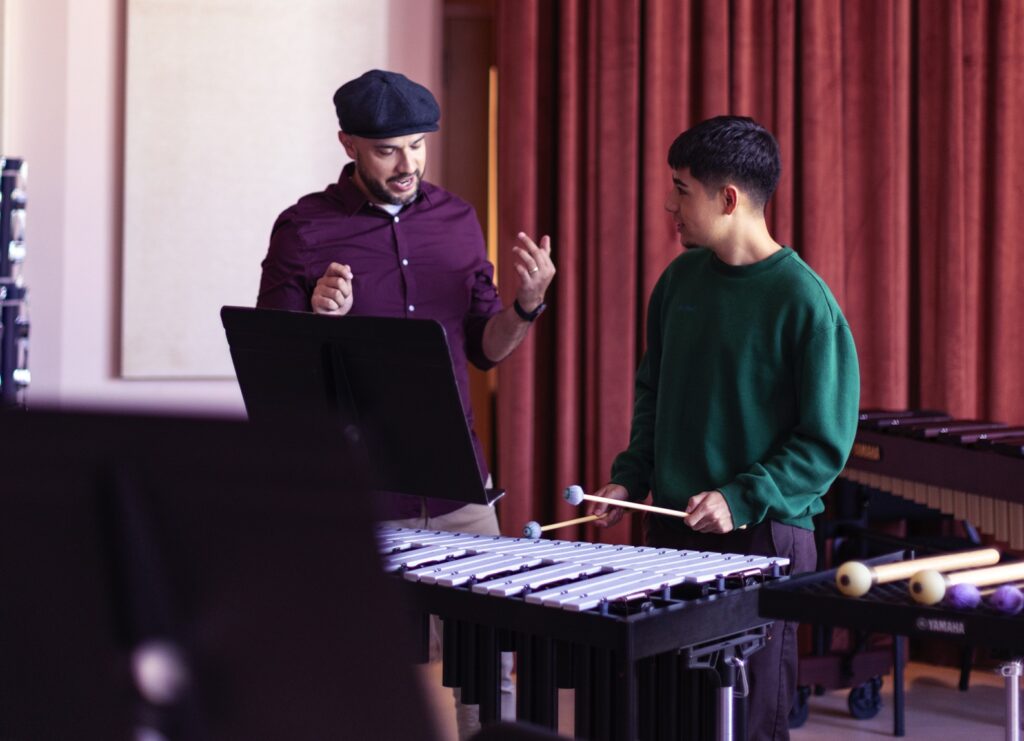Build a Culture of Excellence
Music educators must create an environment where students move from thinking they could be great to knowing they could.
Students who believe in their ability to perform at a high level are more likely to achieve remarkable things.
When students see results as a performer, they develop trust in their instructors. Music educators’ ability to take their students to a level that they may not even see as possible hinges on committing to a process that requires patience and delayed gratification. Directors may not see instant results, but if they can see progress over the long term or find fulfillment in the total impact, that sense of accomplishment will continue to breed success down the road.
“The Little Blue Band That Could”
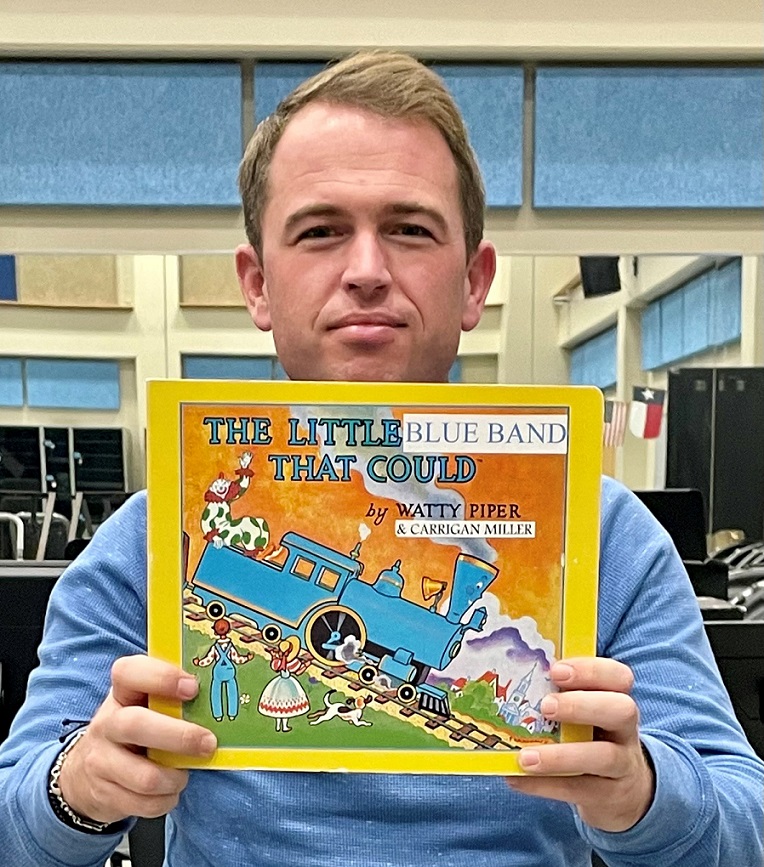 In 2008, Claudia Taylor Johnson High School (CTJ) in San Antonio, Texas, opened, splitting from Ronald Reagan High School shortly after its band placed second at Bands of America Grand Nationals. Many of our upperclassmen did not have a choice to remain at Reagan, and they were highly discouraged moving away from such an incredible band program to start over at a new school with so many unknowns.
In 2008, Claudia Taylor Johnson High School (CTJ) in San Antonio, Texas, opened, splitting from Ronald Reagan High School shortly after its band placed second at Bands of America Grand Nationals. Many of our upperclassmen did not have a choice to remain at Reagan, and they were highly discouraged moving away from such an incredible band program to start over at a new school with so many unknowns.
Although the first two seasons were challenging, the younger students in the band who did not have the same connection with Reagan were endlessly optimistic. Many underclassmen nicknamed the marching band “The Little Blue Band that Could,” playing off the classic children’s book, “The Little Engine that Could.” As the band improved during those early years, the energy and enthusiasm spread quickly. While the students weren’t chanting “I think I can, I think I can,” our staff made a collective effort to build up our students to move from thinking they could be great to knowing they could.
The Big Picture
To build a culture of excellence, we constantly met with students in those years to talk about specific big picture ideas, including:
- The importance of structure and organization: Protocols, policies and procedures can help students thrive in rehearsals and around the band hall. Have a process for everything students do. Consider smaller details like how they line up water jugs and instrument cases along the front sideline of the field to larger details like what they do before they play, such as a “set” or “ready” position. The structure will help keep rehearsals moving forward during the more challenging months of the year and will also maintain a professional environment.
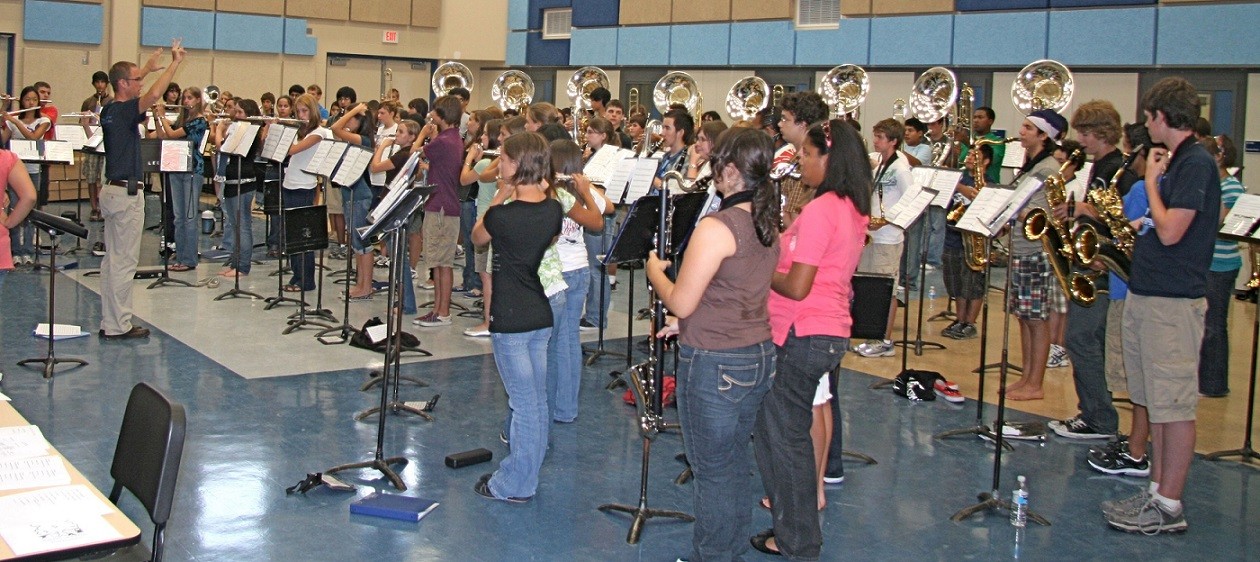 What excellence looks and sounds like: Consider watching videos or playing audio recordings for students of professional groups, as well as great groups their own age. Students will learn to admire professional recordings, but they can learn as much from listening and watching great examples of their peers performing.
What excellence looks and sounds like: Consider watching videos or playing audio recordings for students of professional groups, as well as great groups their own age. Students will learn to admire professional recordings, but they can learn as much from listening and watching great examples of their peers performing.
- Why commitment is important: Students must learn to finish what they start. Help students learn to rest when they get tired, not to quit.
- What it means to push through boredom: As Joe Dixon, one of CTJ’s brass instructors, often reminds us, “Children need to learn to be bored.” Students have phones at their disposal all the time and can instantly entertain themselves with video games or social media. Working through the challenges of playing an instrument and perfecting music can seem boring in comparison, and students must learn how to push through this boredom to achieve success.
- How to follow through and develop a “stick-to-it” attitude: This is tied to the two prior points —commitment and learning to be bored. Students who are committed will follow through and find success through delayed gratification. Students who learn patience through band will ultimately translate this practice to other endeavors or pursuits in their lives.
- Overcoming failure: Students must learn how to bounce back when they don’t achieve a goal or don’t get what they want. Learning to cope with failure is a powerful way to grow an organization because students will likely fall three times before they are on their way.
- The rewards of hard work: The final concerts and performances of a school year are some of the very best rewards for hard work. Students also learn time management, bond with their peers and develop conflict resolution skills through their hard work and participation in band.
- The sense of accomplishment when achieving goals: Celebrating success is more fun when you do it with others. In this case, students learn how special it can be to celebrate victories large and small with their peers.
- Teamwork: Teamwork makes the dream work. Students learn that many hands make light work, and they learn how to function in a hierarchy of leadership. Sometimes students will be the queen bee and other times, the drone.
- Faith, Honor, Love: Most importantly, students learn to have faith in one another and in the process. They learn the value of keeping their word and honoring those who have come before them. And they learn to love their teammates, their school, their community and their family.
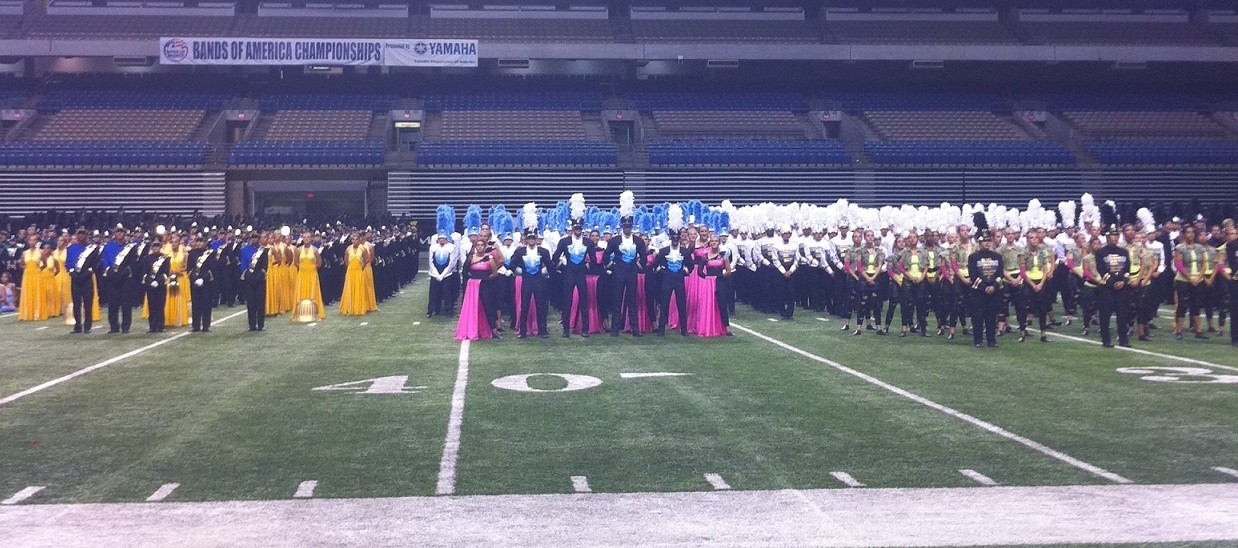 Getting our students to a place where they were excited to be great together and to believe in the journey was a process! It was paramount for us to have the values listed above in place before we ever attempted to improve as musicians and athletes.
Getting our students to a place where they were excited to be great together and to believe in the journey was a process! It was paramount for us to have the values listed above in place before we ever attempted to improve as musicians and athletes.
In 2010, when CTJ made finals at its first regional and advanced to the state marching contest for the first time, our senior class who had started their band journey at Reagan was so satisfied to see the CTJ band improving quickly. It went beyond placement and was all about progress.
And four years later, the freshmen who helped start the band at Johnson made finals at Grand Nationals as seniors, with their bandmates from the prior three years celebrating the rapid ascent of “The Little Blue Band that Could.”










